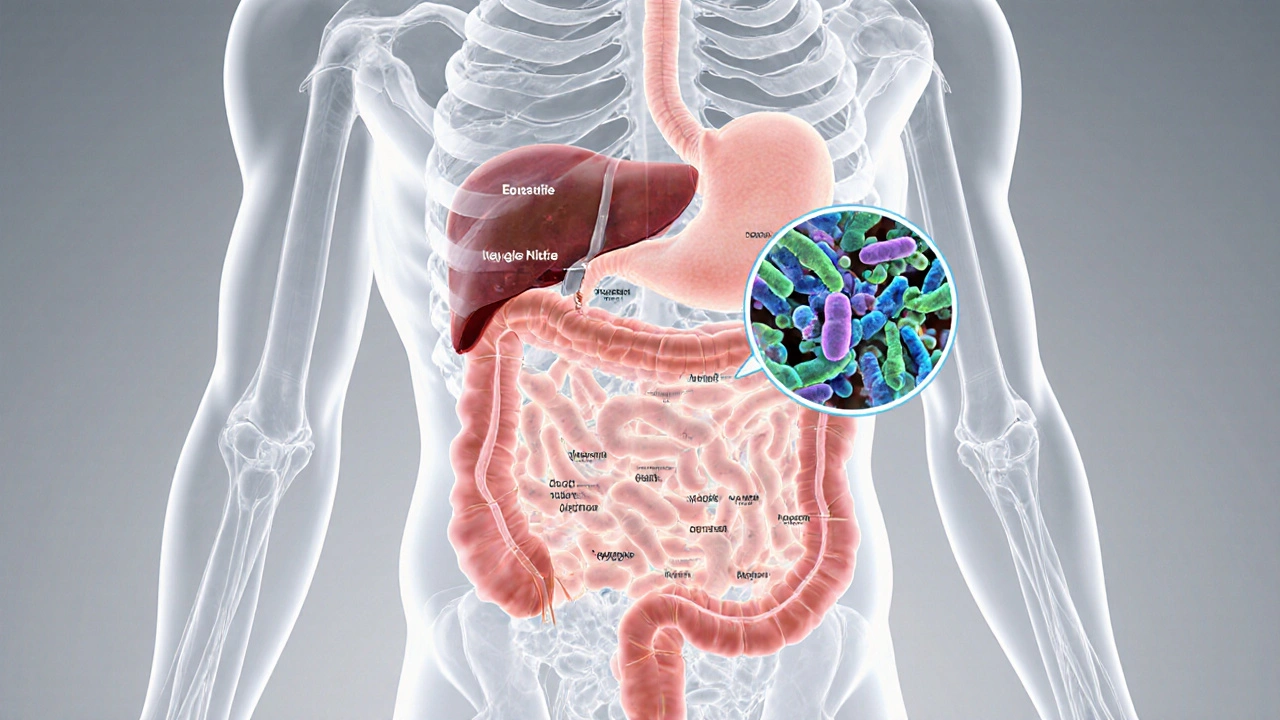Stomach Health: Everyday Tips for a Happy Tummy
When thinking about stomach health, the state of your stomach’s ability to break down food and keep you feeling good. Also known as digestive wellness, it’s a cornerstone of overall health. Understanding how the stomach works makes it easier to spot problems early and fix them with simple habits. Mastering stomach health starts with knowing what fuels your gut and what strains it.
Good gut health, the balance of microbes in your intestines that support immune function and nutrient absorption underpins stomach health. A diverse microbiome sends signals that regulate digestion, mood, and even sleep patterns. When the gut microbiome is thriving, it helps the stomach process food more efficiently, reducing bloating and discomfort. In short, gut health influences stomach health by providing the right enzymes and protecting the lining from irritation.
One of the easiest ways to support both stomach and gut health is by loading up on fiber, the plant‑based carbohydrates that bulk up stool and feed beneficial gut bacteria. Soluble fiber forms a gel in the stomach, slowing digestion and helping you feel full longer; insoluble fiber adds texture that moves waste through the gut. Research shows that a daily intake of 25‑30 g of fiber can lower the risk of acid reflux, constipation, and even stomach ulcers. Foods like oats, berries, beans, and whole‑grain toast are simple, tasty ways to hit that target.
Another powerhouse for a happy stomach is probiotics, live beneficial bacteria that can restore balance to the gut microbiome. Probiotic‑rich foods such as yogurt, kefir, sauerkraut, and kimchi introduce strains like Lactobacillus and Bifidobacterium, which can calm inflammation and improve the stomach’s acid regulation. Studies show that regular probiotic consumption reduces the frequency of indigestion and supports the healing of the stomach lining after an upset. Pairing probiotics with pre‑biotic fibers creates a synergistic effect, feeding the good bugs and letting them flourish.
Beyond foods, the mechanics of digestion itself matter. Your stomach releases acid and enzymes in a precise rhythm; when you skip meals, binge, or eat too quickly, that rhythm gets thrown off. Eating smaller, balanced meals every 3‑4 hours keeps acid levels steady and gives the stomach time to empty properly. Chewing thoroughly – aim for 20‑30 bites per mouthful – signals saliva production, which starts breaking down carbs before they even hit your stomach.
Stress and sleep are silent drivers of stomach health, too. Heightened cortisol levels can increase stomach acid, leading to heartburn or gastritis. Prioritizing a regular sleep schedule (7‑9 hours) and winding down with mindfulness or gentle stretching can calm the nervous system and lower acid spikes. When you combine a fiber‑rich diet with probiotic snacks and stress‑relief habits, you create a three‑layer defense that keeps the stomach lining resilient and the digestion smooth.
What You’ll Find Below
The articles below dive deeper into each of these ideas. From high‑fiber breakfast recipes that power your morning to science‑backed steps for improving gut health at home, you’ll get practical, bite‑size tips you can start using today. Whether you’re looking to boost energy, calm nighttime reflux, or simply feel lighter after meals, the collection gives you a clear road map for better stomach health.

Effective Strategies for Maintaining Excellent Gastro Health
Learn practical, science-backed strategies to improve your gastro health through diet, chewing, hydration, stress management, and lifestyle changes-without extreme restrictions or supplements.
Read More
Gastro Health Guide: How to Boost Your Gut Wellness
Learn how the digestive system works, get practical gut health tips, discover when to see a doctor, and follow a daily checklist for better gastrointestinal wellness.
Read More